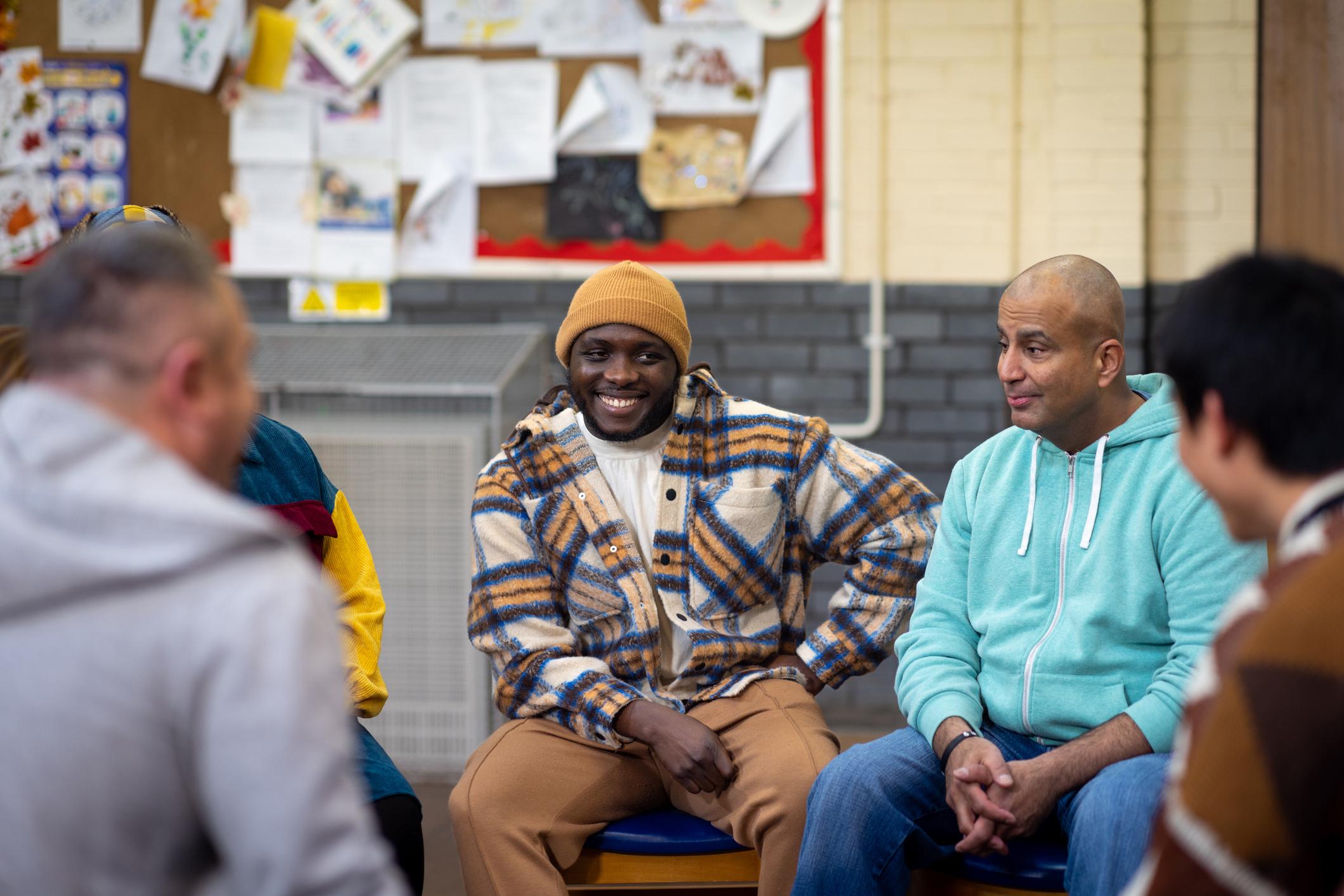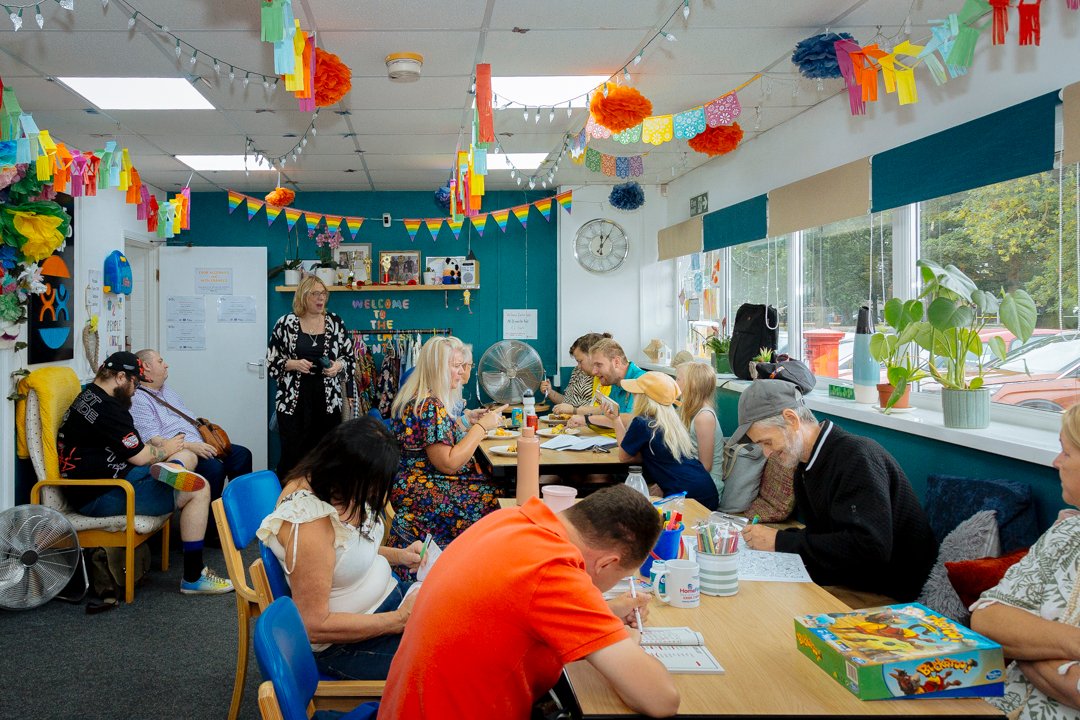
Shifting the role of the state
As hardship deepens, a supportive local state and national government is what neighbourhoods and communities need to thrive.
Tackling hardship in neighbourhoods requires a supportive local state. Our first 2 blogs in this series looked at themes of strengthening social infrastructure, and building connection, resilience and power in communities, but this alone will not shift the dial on hardship. Thinking it can was the mistake of the coalition Government’s approach to the Big Society.
Rather, as our final 4 ideas pieces set out, shifting the dial on hardship requires work in communities to be met by a like-minded local state – one that puts people and relationships at the centre of its work. Our final 4 ideas pieces are connected by themes of how local areas can reshape frontline services, support people’s strengths and aspirations, and work with communities to support people to thrive. They point to examples of emerging work and identify ways national government could help this work move much faster and spread further.
Supporting people and enabling communities to thrive
As several of our authors points out, hardship is not an experience that neatly fits into our system of siloed services. The challenges people face can be complex and interlocking, for example spanning health, mental health, isolation, housing, debt and access to the right benefits. And as Jess Studdert, and Toby Lowe and Mark Smith note, this results in a system ill-equipped to respond to the person in front of them, offering instead transactional interactions, and passing people from pillar to post as they’re referred from service to service.
They call instead for services to be reshaped around people’s strengths and what matters to them, and point to inspirational work in Gateshead to reform local public services. Here, work starts with building meaningful trusting relationships and unlocking practical barriers to meeting goals that matter to people. And the results are impressive.
How to tackle the immediate financial crises looming over people is also a question on Katie Schmuecker’s mind. She makes the case for a reformed and strengthened local crisis support system to be at the heart of local efforts to protect people from hardship in England (while also noting the crucial role for national policy – for example to reform Universal Credit). This ‘Back On Your Feet Fund’ would bring together piecemeal funding streams to create a single pot, providing access to cash in an emergency, and fund in-kind help, advice and support. Funding allocations over three years would enable local authorities and their partners to make strategic investments to tackle hardship in their area.
Alongside how to redistribute funds to the worst-off people and places, Sarah Longlands in her piece urges us to think differently about wealth, how we accumulate assets and who gets to own them. She points to the local authorities, metro mayors and NHS bodies that are making this mental switch, and working to use their employment, procurement and development functions to support the building of wealth in their communities. Sarah highlights how Manchester City Council has changed its procurement processes to improve job quality and progression in its supply chain, and changes to recruitment practice by the NHS and its partners in Birmingham to open opportunities to marginalised communities. These measures enable wealth to flow, circulate and be owned within communities creating a stronger foundation for thriving.
Policy change unlocks the potential of neighbourhoods
This work is happening in the margins and against the odds at the moment, but the impact could be so much greater if we supported it to move centre stage. Our authors make several suggestions for how national policy change could support this to happen. In Katie's piece we argue central government should take inspiration from the focus and coordination of major community renewal programmes of the past, such as the National Strategy for Neighbourhood Renewal.
But rather than the top-down targets of the past, today’s approach should look more like a challenge shared by central government and some pioneer places. This would be a way of drawing on all the resources available in a place and seeking to coordinate them behind a galvanising shared priority, supported by some additional resource from the centre, a focus on learning and a feedback loop to national policy makers.
But numerous authors in the series rightly highlight the parlous state of local government funding and finance after deep and sustained cuts that have hit the most deprived places hardest. While there is clearly a need to revisit local government funding, Jess Studdert in her piece makes a compelling case for a national shift towards pooled place budgets with local democratic oversight drawing on decades of place-based pilots. This would enable funding to flow to where it is needed according to local priorities, breaking down Whitehall silos and creating shared accountability across all the public services in a place.
However, as Toby Lowe and Mark Smith argue, for relational and person-centred approaches to flourish, we will need to rewire public administration. For them that means shifting away from the current dominant model of New Public Management with its preference for top-down performance measures and competition. Instead they call for a Human Learning Systems approach that prioritises collaboration and learning, and point to the work of Healthcare Improvement Scotland to roll out this approach.
Harnessing the art of the possible
A key take away from this blog series is that the ideas presented by our authors are not just abstract constructions, but ideas based in the real world. They demonstrate that, at a time of deepening hardship, people are coming together to help each other - but for this to have greater impact neighbourhoods and communities need to be met with a supportive local state. They in turn need the support of national government to be able to spread and hardwire these approaches into our systems. There is an opportunity to be grasped by a government that wants to protect people from hardship and support them to thrive.
Explore the ideas pieces on this subject:
Tackling hardship within neighbourhoods by Katie Schmuecker
Breaking the cycle of hardship with integrated local systems by Jessica Studdert
Relational public service can tackle hardship in neighbourhoods by Toby Lowe and Mark Smith
Hard times require a hardwiring of economic change by Sarah Longlands

This idea is part of the neighbourhoods and communities topic.
Find out more about our work in this area.

